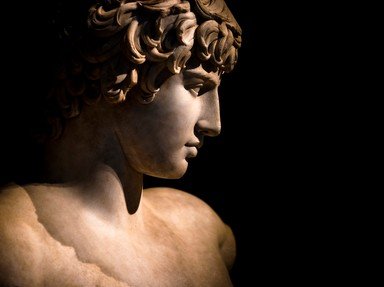Quiz Answer Key and Fun Facts
1. Pan, the Greek god of nature, has the legs and horns of what animal?
2. Although Pan's parentage is unclear, who is generally considered to be Pan's father?
3. What was the name of the beautiful nymph, who was transformed into a reed by river nymphs to escape Pan lust?
4. According to legend what was the reaction of Pan's mother at his birth?
5. Legend had it that Pan caused the Persians to panic in what well-known battle against the Athenians?
6. Pan was most widely worshiped in what area of Greece?
7. Pan was said to have challenged what god to a music competition?
8. Pan ordered his followers to kill a nymph because she rejected his amorous advances. What was her name?
9. Who did the gods change into a mountain pine tree so she could avoid Pan's lustful advances?
10. Who was the moon goddess that Pan seduced after wrapping himself in a sheepskin to hide his hairy goat form?
Source: Author
john62450
This quiz was reviewed by FunTrivia editor
ponycargirl before going online.
Any errors found in FunTrivia content are routinely corrected through our feedback system.

